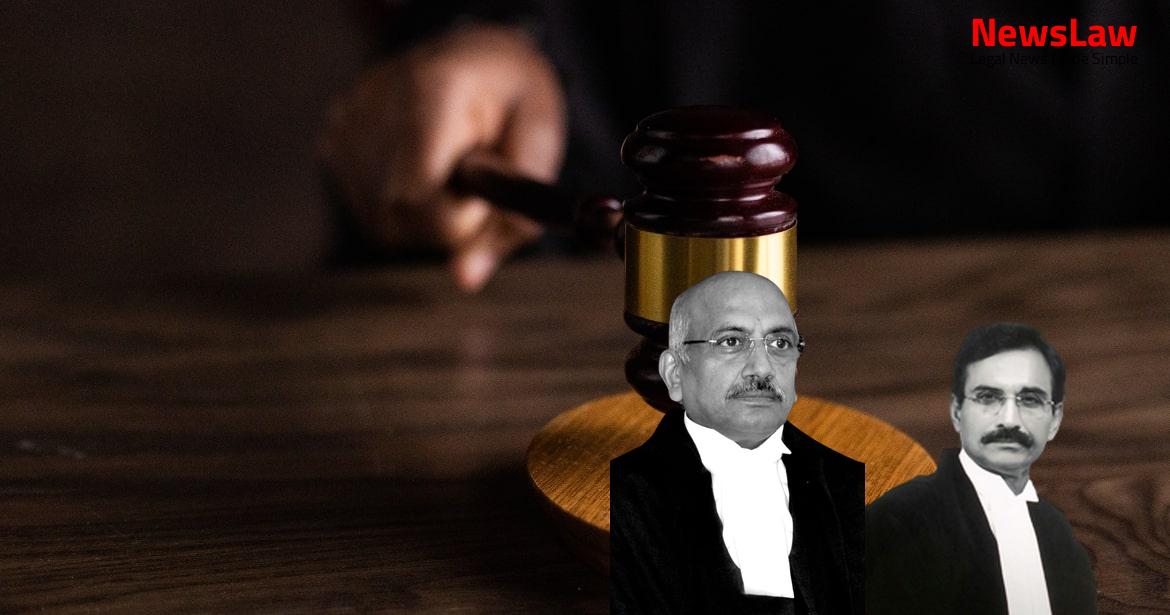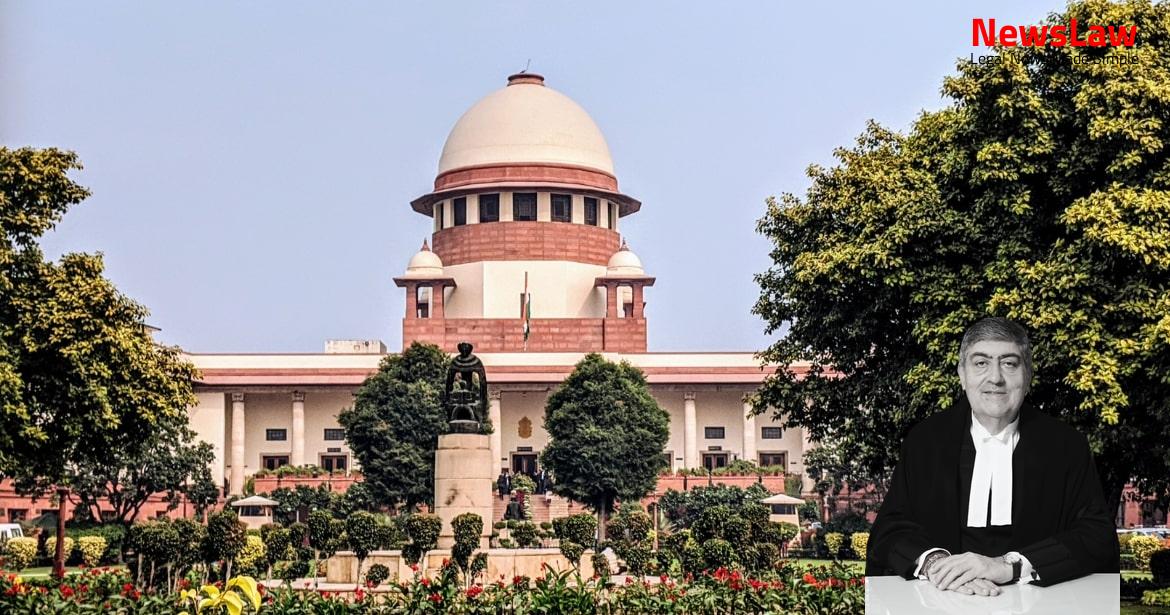In a significant legal battle, the petitioners(Abhimeet Sinha and ORS.) have challenged the constitutionality of the Rules stipulating minimum qualifying marks in the viva voce test for appointment to the District Judiciary in Bihar and Gujarat. The petitioners, represented by their counsel, argue that the requirement of minimum marks in the viva voce test is arbitrary and violates Articles 14 and 16 of the Constitution. This case, titled ‘Challenging Minimum Qualifying Marks in Viva Voce Test: Petitioners vs. Bihar and Gujarat Judicial Services,’ delves into the complexities of recruitment processes and the role of judicial bodies in ensuring fair selection methods.
Facts
- The main written examination was conducted on 19.1.2020, with results published on 24.7.2020.
- 132 candidates were declared successful for the interview round.
- An amendment to the Bihar Rules, 1951 was made on 3.4.2013, introducing a screening test, main written test, and interview for selection to the Bihar Superior Judicial Service.
- An advertisement for recruitment of Civil Judges in Gujarat was issued on 26.8.2019, with specific criteria for viva-voce test marks.
- After detailed verification, 3 more candidates became eligible for the interview segment.
- Discrepancies in marks tabulation were noticed by the Patna High Court during reply preparation to a writ petition, leading to the need for fresh tabulation as per Gujarat Rules, 2005.
- Candidates had to score minimum marks in written examination and viva-voce segments for selection in Gujarat.
- The main writ petition was filed by unsuccessful candidates in the District Judges Examination in 2015.
- The last candidate in the general category got 124 marks, and a writ petitioner with 135.33 marks was not selected due to viva-voce marks below 40%.
- Objectives of the viva-voce test were specified to assess various qualities of the candidates.
- Prayers in the writ petitions include quashing the selection list and conducting fresh interviews.
- Challenges to the validity of the Bihar Rules, 1951 and Gujarat Rules, 2005, amendments are raised in the petitions.
- In August 2016, the Patna High Court issued an advertisement for filling up posts for District Judge (Entry Level) for 98 vacancies.
- The Bihar Rules 1951 were amended on various occasions to adjust the qualifying marks and criteria for the recruitment process.
- The selection process involved written examinations and viva voce tests, with specific qualifying marks set for each stage.
- Candidates had to secure minimum marks in theory papers and viva voce to be eligible for appointment.
- The High Court allowed relaxation of marks in certain cases to facilitate a more efficient selection process.
- Overall, the selection and appointment process involved various amendments to the Bihar Rules 1951 to streamline the recruitment of District Judges and Civil Judges.
Also Read: Avitel Post Studioz Ltd. v. HSBC: Enforcement of Foreign Arbitral Award
Issue
- The issues to be considered include the prescription of minimum marks for viva voce in contravention of the law laid down by the Supreme Court in All India Judges(2002)
- Evaluation of whether the prescription of minimum marks for viva voce violates Articles 14 and 16 of the Constitution of India
- Examination of whether the selection process in Bihar is tainted due to moderation of marks and corrective actions highlighted by the petitioners
- Assessment of whether non-consultation with the Public Service Commission for selection to the post of Civil Judge in Gujarat is a constitutional violation
Also Read: Insurance Claim Repudiation due to Fire Incident: Court’s Legal Analysis
Arguments
- The petitioners challenge the constitutionality of the Rules stipulating minimum qualifying marks in the viva voce test for appointment to the District Judiciary in Bihar and Gujarat.
- The petitioners had cleared the written examination but failed to meet the minimum qualifying marks in the viva voce test.
- The Court acknowledges the petitions partially, noting that if viva voce marks were added to the written test scores, the petitioners would have been included in the merit list.
- The petitioners argue that the requirement of minimum marks for viva voce is arbitrary and violates Articles 14 and 16 of the Constitution.
- The discussion involves the impact of the Shetty Commission recommendations and past judgments in similar cases.
- The issue of biases based on various factors like socio-economic background, gender, and cultural capital in the selection process is highlighted.
- The debate also includes the balance between merit, potential, and fairness in the recruitment process.
- The High Court’s discretion to set criteria and the necessity to provide a level playing field for all candidates are discussed.
- The arguments touch upon the need for transparency, reduction of subjectivity, and adherence to the constitutional scheme in recruitment processes.
- The petitioners’ contentions on the selection criteria and the consultation with the Public Service Commission are evaluated.
- Finally, the application of the principle of estoppel and the challenge against illegalities in the selection process are debated.
- Prescription of minimum qualifying marks in viva-voce under Rule 8(3) done in consultation with High Court of Gujarat but not with Gujarat Public Service Commission.
- Mandatory requirement of Article 234 necessitates Rules to be declared void.
- Gujarat Public Service Commission requested exemption as per Gujarat Public Service Commission (Exemption from Consultation) Regulations, 1960.
- Letter dated 10.6.2005 from Gujarat Public Service Commission stated that the proposed post of ‘Civil Judge’ does not fall within its jurisdiction.
Analysis
- Consultation with High Court under Article 234 is vital to preserve judiciary’s independence
- Consultation with Public Service Commission is different and not mandatory for judiciary appointments
- High Courts have authority to set minimum qualifying marks for selection process
- Moderation of marks is permissible within the rules and regulations
- Recommendations by Shetty Commission are guidelines, but rules prevail in case of inconsistency
- Maintaining transparency and objectivity in the selection process is crucial
- Rules and regulations governing judicial appointments take precedence over recommendations
- High Courts have flexibility to address challenges during the selection process
- Maintaining fairness and integrity in the examination and interview processes is essential
- Adherence to established rules and guidelines ensures the credibility of the selection process
- The Court emphasized the importance of non-arbitrariness in Article 14, stating that any action that is arbitrary negates equality.
- Prescribing minimum qualifying marks for interviews is permissible and does not violate previous judgments.
- Challenges to rules prescribing minimum marks for interviews in Bihar and Gujarat were repelled as valid.
- The High Court should be given primacy in the consultation process, and rules framed without such consultation would be void.
- Recommendations from the Shetty Commission need to be incorporated into the statutory rules for judicial officers.
- The Court highlighted the significance of viva voce tests in assessing a candidate’s personal and intellectual qualities.
- Judicial bodies should follow the marks awarded by interviewing bodies unless the marking is proven to be arbitrary or affected by ulterior motives.
- The assessment of marks at viva voce tests may be considered arbitrary only if it is patently or inevitably arbitrary.
- The Court noted that while written exams test knowledge, interview tests are valuable for assessing overall qualities.
- The Shetty Commission raised concerns about the fairness of viva voce exams compared to written exams.
- The judgment emphasized the authority of the High Court in framing appropriate rules for judicial officer selection processes.
- Prescribing minimum marks for interviews was considered both desirable and necessary by the Court.
- The Court held that State actions must be based on valid and relevant principles to avoid arbitrariness.
- Clause 3 of Article 16 does not mandate consulting the Public Service Commission regarding provisions mentioned in clause 4 or implementing Article 335.
- Regulations made under clause 3 must be laid before Parliament or Legislature for at least 14 days and can be modified by the houses during the session.
- Article 320 outlines the functions of Public Service Commissions in conducting examinations and offering assistance for recruitment schemes.
- Article 234 empowers Governors to make judicial service appointments in consultation with the State Public Service Commission and relevant High Court.
- Article 235 gives High Courts control over Subordinate Courts.
- The Gujarat Rules of 2005, amended in 2011, outline the appointment process for the Gujarat State Judicial Service.
- The 2011 amendment to the Gujarat Rules omitted consultation with the Gujarat Public Service Commission, which is a significant change.
- Articles 233, 234, and 235 of the Constitution deal with the appointment of District Judges without the need for consultation with the Public Service Commission.
- The recruitment process must adhere to the timeline
- In case of special and unavoidable exigency, stakeholders should be informed promptly
- Communication of any delays or changes is important to all stakeholders
Decision
- The non-consultation with the Public Service Commission does not make the Gujarat Rules, 2005 void.
- A report should be submitted to begin disciplinary procedures against the individual responsible for the oversights.
- The selection processes in Bihar and Gujarat are deemed legally valid and upheld.
- The writ petitions are dismissed without any costs.
Case Title: ABHIMEET SINHA Vs. HIGH COURT OF JUDICATURE AT PATNA (2024 INSC 381)
Case Number: W.P.(C) No.-000251-000251 – 2016



